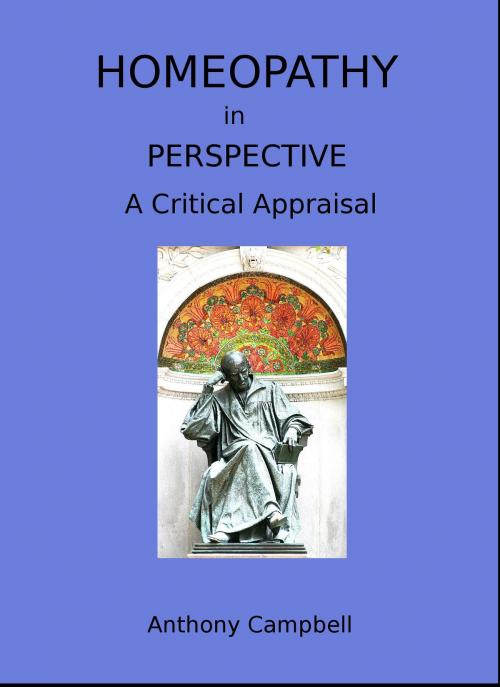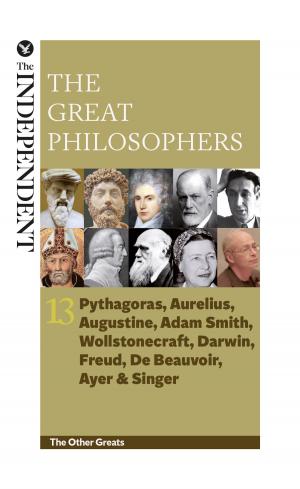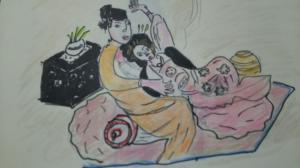Homeopathy In Perspective: A Critical Appraisal
Nonfiction, Health & Well Being, Health, Alternative & Holistic Health, Homeopathy, Medical, Reference, History| Author: | Anthony Campbell | ISBN: | 9781452338545 |
| Publisher: | Anthony Campbell | Publication: | October 24, 2009 |
| Imprint: | Smashwords Edition | Language: | English |
| Author: | Anthony Campbell |
| ISBN: | 9781452338545 |
| Publisher: | Anthony Campbell |
| Publication: | October 24, 2009 |
| Imprint: | Smashwords Edition |
| Language: | English |
This is a balanced but critical book. No prior knowledge of homeopathy is assumed, but this doesn't mean that the book is meant only for beginners. Even if you have read a good deal about homeopathy previously you may, I believe, find that you view it in a different light after you have finished. What I try to do here is to look at homeopathy as squarely as possible and to provide the facts as I see them. What you then make of them is up to you. I think this is worth doing because the material I present is not well known even to many homeopaths, yet it's essential for anyone who wants to make an informed judgement about homeopathy. These facts are not, to my knowledge, easily available anywhere else; it certainly took me a long time to learn them.
The book is in two parts. Part I explains the origins of homeopathy and how it came to be where it is today. It provides explanations for some of the more outlandish ideas in homeopathy and sets them in their historical context, without which it is not really possible to form an adequate idea of the subject. Part II is concerned with homeopathy now and considers the evidence for its effectiveness. I do this by looking at the research evidence and also by describing my own experience, over 24 years, of actually using the treatment.
Many patients say they derive benefit from homeopathy but it remains controversial. Although there is some research evidence for its efficacy, most of this is of dubious quality. My conclusion is that homeopathy is probably best considered as a form of psychotherapy. It is unlikely to disappear because the way of thinking on which it is based has profound appeal to many people who are suspicious of mainstream science.
This is a balanced but critical book. No prior knowledge of homeopathy is assumed, but this doesn't mean that the book is meant only for beginners. Even if you have read a good deal about homeopathy previously you may, I believe, find that you view it in a different light after you have finished. What I try to do here is to look at homeopathy as squarely as possible and to provide the facts as I see them. What you then make of them is up to you. I think this is worth doing because the material I present is not well known even to many homeopaths, yet it's essential for anyone who wants to make an informed judgement about homeopathy. These facts are not, to my knowledge, easily available anywhere else; it certainly took me a long time to learn them.
The book is in two parts. Part I explains the origins of homeopathy and how it came to be where it is today. It provides explanations for some of the more outlandish ideas in homeopathy and sets them in their historical context, without which it is not really possible to form an adequate idea of the subject. Part II is concerned with homeopathy now and considers the evidence for its effectiveness. I do this by looking at the research evidence and also by describing my own experience, over 24 years, of actually using the treatment.
Many patients say they derive benefit from homeopathy but it remains controversial. Although there is some research evidence for its efficacy, most of this is of dubious quality. My conclusion is that homeopathy is probably best considered as a form of psychotherapy. It is unlikely to disappear because the way of thinking on which it is based has profound appeal to many people who are suspicious of mainstream science.















